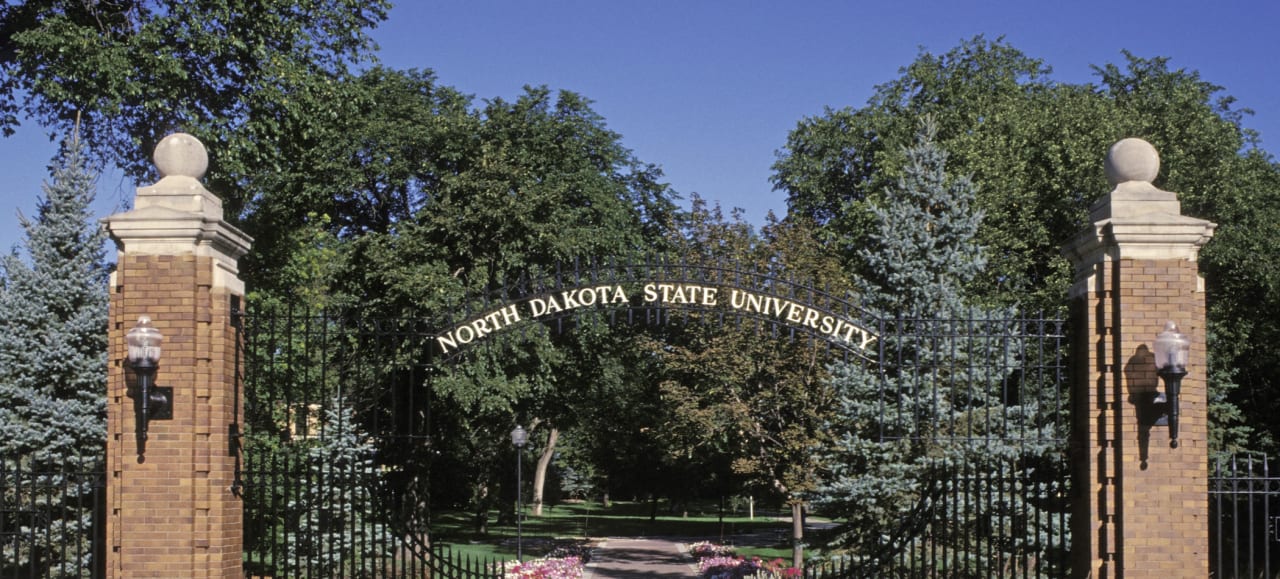
MS in Environmental & Conservation Science
North Dakota State University - Graduate School

Key Information
Campus location
Fargo, USA
Languages
English
Study format
On-Campus
Duration
2 years
Pace
Full time
Tuition fees
USD 421 / per credit **
Application deadline
02 May 2024*
Earliest start date
01 Aug 2024
* International applications are due May 1 for fall semester and October 1 for spring semester. Domestic applicants should apply at least one month prior to the start of classes
** COST PER CREDIT: North Dakota (and western U.S. states) residents $421 | Minnesota residents $535 | Residents of other U.S. states $632 | International students $737
Introduction
North Dakota State University's graduate program in Environmental and Conservation Sciences (ECS) rests on an integrative curriculum and a multidisciplinary team approach. The program emphasizes the common ground shared by all sciences and seeks to bridge methodological and philosophical boundaries that might hinder interdisciplinary communication and cooperation.
Gallery
Admissions
Scholarships and Funding
Financial Assistance
The applicant should contact a prospective mentor to identify sources of financial aid. Teaching and research assistantships may be available through funded research or participating departments. Applicants are considered on the basis of scholarship and potential to undertake advanced study and research. Contact the Office of Financial Aid and Scholarships for information and applications regarding scholarships.
Curriculum
Degree Requirements
For the M.S. study, the Graduate Supervisory Committee will consist of at least three members of the NDSU graduate faculty and will include the student's adviser, an ECS faculty member, and a faculty from outside the student's home college. The plan of study will be prepared by the student, in consultation with the major adviser, by the end of the first year in residence.
Master of Science in Environmental and Conservation Sciences
The total credits will be not less than 30 graduate credits, with at least 16 credits of graduate courses numbered 601-689, 691; 700-789, 791 or 800-889, 891 plus the ECS graduate seminar for 1 credit, and research credits (798) not fewer than 6 nor more than 10 thesis credits. The didactic credits must include at least 1 ECS cross-disciplinary course; 1 ECS track course and UNIV 720 Scientific Integrity. All M.S. students must complete a thesis and pass a final examination as described in The Graduate School Policies section of the Graduate Bulletin. An overall GPA of 3.0 or better must be maintained.
The program offers three tracks:
- Environmental Science
- Conservation Biology
- Environmental Social Sciences
The Environmental Science track focuses on abiotic environmental issues, such as water, air, and land pollution. The Conservation Biology track focuses on biotic issues, such as the preservation of biodiversity and ecosystem function. The Environmental Social Sciences track emphasizes environmental economics and policy.
The interdisciplinary nature of this program is reflected by the participation of faculty from across the campus, including the Colleges of Agriculture, Food Systems, and Natural Resources; Arts, Humanities, and Social Sciences; Engineering; and Science and Mathematics.
Environmental Science
Areas of Environmental Science, such as climate change, groundwater, hazardous waste, and water chemistry, require broad training across discipline lines for successful application. To better predict anthropogenic environmental impacts, the engineering, earth material, chemical, and biological data must be considered in an integrated manner.
Conservation Biology
Conservation Biology focuses on the loss of regional and global biodiversity but considers the human element as well in its approach to resource issues. As an example, conservation genomics, community ecology, invasion ecology, endangered species management, and human-wildlife conflicts are themes for ECS Graduate Students.
Environmental Social Sciences
Environmental Social Sciences focuses on Natural Resources Economics; Environmental Economics as related to Environmental policy.